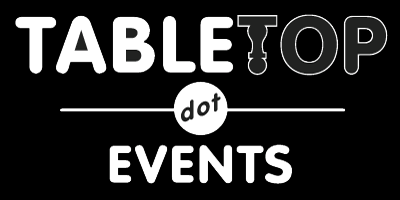
Frequently Asked Questions
Q: How does this Protospiel thing work?
All designers are asked to honor a reciprocal agreement; if a designer helps you by testing your game, you should return the favor by playing other designers' games. Try to test as many other designer's games as you require playtesters in your game. That is, if you need 5 playtesters to help you with your game, try to play in 5 other designer's games before the event ends. This is a guideline and principle; the event works best when people try to follow it, but it isn't required.
Other than this, the event is very informal. People should feel free to invite others to try their games and accept invitations offered. There is no event registration or fees; this is a cooperative effort between everyone present.
Q: What should I expect from a playtest session?
Here are a few things to remember when testing your game:
Mention your design goals from the start. Tell your playtesters as specifically as you can what they should look at or look for in your game or where you're looking for advice. Be respectful of everyone's time. Practice your setup and rules explanation and try to be as efficient as you can. It is okay to interrupt play to talk over details and variations, but stay on track - there's a lot to do and other people to share with! Be open to feedback and suggestions! Your fellow designers will likely have a wealth of thoughts and ideas to share about your game; take advantage of this, but don't let misunderstandings or differences of opinion get in the way. Here are a few things to remember when testing other designer's games;
Listen carefully to the designer and try to provide the help for which they're looking. For example, suggestions about graphic design may not be very useful if the session is about rules or balance. Fill out a playtest evaluation. Or make notes and draw pictures; it can be very helpful to a designer to have feedback recorded. Try to present your thoughts at the end of the session to avoid interruptions. Focus on being constructive and helpful. A designer's game is likely something they've labored over and care deeply about. They're sharing their creation to try to make it better and it can be very discouraging if feedback is dismissive or thin.
Q: Do I have to have a game to playtest to attend Protospiel?
Not at all! We always welcome people who are willing to help. If you haven't had time to finish your prototype in time for the event or are just starting out, you can still be a big help and make some great connections. It is best if you have some experience with design and playtesting. Many of the people in attendance will have put in considerable time and money to prepare for the event and are looking for the best help they can get. Everyone will be looking for insightful and serious feedback from like-minded designers. But all you really need is a willingness to play games and a desire to help make them better.
Q: How many games should I bring?
You're welcome to bring as many prototypes as you want, but it will be difficult to find time for more than two or three of them. You can list whatever game(s) you are bringing on the Prototype page. Protospiel depends on a cooperative ethic where people take turns sharing and working on their designs. You'll get much better feedback than a typical playtest session but that requires sharing your insights with others on their projects too. And sometimes you can learn as much from playtesting other's games as you can from showing your own game.
Q: What stage of development should my games be in?
Try to bring games that have already undergone some amount of development and refinement. It's best if it isn't completely finished, but also a good idea if it isn't just a vague outline. This is meant to be a working session that improves your game.
The appearance of your prototype is not nearly as important as the functionality. Some people will have demonstration copies with excellent production quality, but that's not necessary to get good work done on a game.
Q: What types of games are usually represented?
Generally the games will be strategic board or card games for a more sophisticated market, the kinds of things you might find on the shelf at your local specialty game store. This covers a pretty wide range; abstract, family, party, strategy, war games, "eurogames", simulations, and many more. Any genre of game is welcome, but you should remember that the other attendees will be the playtesters, so a game they're comfortable playing and understanding is best.
Q: What if I have a finished game I'm getting ready for Kickstarter or is already for sale?
Then Protospiel is NOT for you.
Q: Where can I learn more about Protospiel?
Try any of the following great resources:
- A great article posted about Protospiel at League of Game Makers
- A list of Games Tested & Published from past Protospiels!
- Jeff King's Protospiel Best Practices
Q: Why should I pre-register?
There are only 40 seats available - once registration fills no additional designer badges will be available.
Q: What if I just want to playtest other peoples' games?
Buy a playtester badge!.
Q. When does pre-registration close?
Wednesday, January 26th at 11:00PM EST UNLESS we sell out before then.
Q. Can I register at the door?
YES It'll cost you $30 for designers and $10 for playtesters instead of $25 and $5 respectively.
